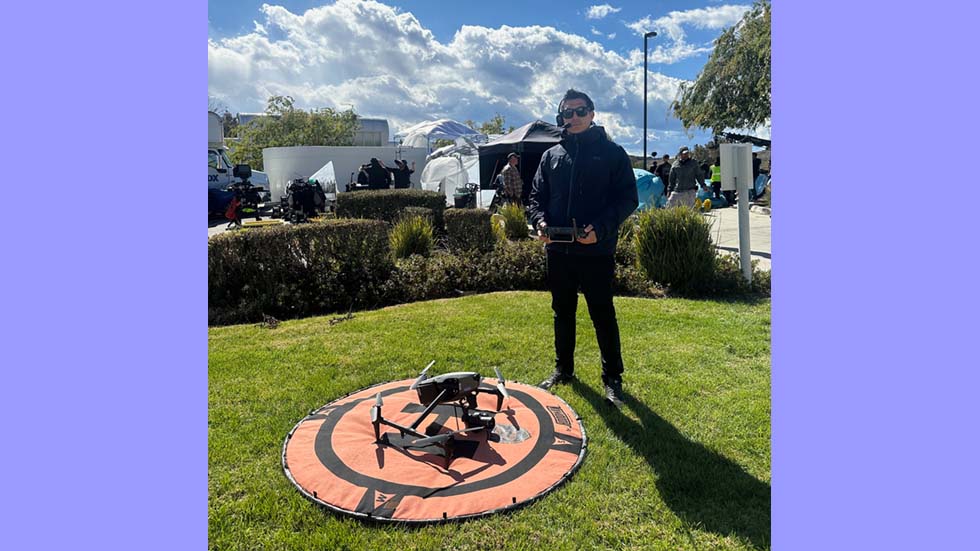987 Stations Displaced, 175 Broadcasters to Split $10 Billion

WASHINGTON—The auction results are in and the new TV channel assignments are out. A total of 987 TV stations will be moved in the upcoming 39-month repack, and 175 broadcasters who sold spectrum in the auction will split the $10 billion offered up for it by wireless providers. With today’s release of the Federal Communications Commission’s “Auction Closing and Channel Reassignment Public Notice,” the 90-day shot clock also begins on repack construction and modification applications and reimbursement estimates, making them due July 12, 2017.
“More than $10 billion will go to 175 winning broadcasters that elected to participate in the incentive auction and repurpose their airwaves for mobile use,” the commission said. Of those, the highest price paid to a station went to WWTO-TV in Chicago, licensed by the Trinity Christian Center of Santa Ana, Inc., which will receive $304 million. New Jersey Public Broadcasting will get $332 million for two stations.
Of the winners, 30 stations will receive money for agreeing to move to a lower channel and 133 others will relinquish their licenses”and channel share, the commission said. A total of 12 winning TV stations that agreed to go off the air indicated they had no pre- or post-auction channel-sharing arrangement and are therefore likely to go off the air. (See sidebar, Going Dark?)
GOING DARK?
Stations with no pre- or post-auction channel-sharing arrangement who agreed to go off the air in the auction application, include:
WAGT, Gray-owned NBC affiliate in Augusta, Ga., where Gray also owns CBS affiliate WRDW and low-power license WAGT-CD, for $40.8 million.
WPBO in Charleston-Huntington, W.V., licensed to Ohio State University, for $8.8 million. (Announced by OSU March 3.)
WAOH-CD in Cleveland-Akron, Ohio, the Media-Com Television-owned, Class A Retro TV affiliate, for $ 1.8 million.
KATA-CD in Dallas-Ft. Worth, Texas, the Mako Communications,-owned Class A Shop LC affiliate for $19.6 million.
WFXI in Greenville-New Bern-Washington, N.C., the Esteem Broadcasting-owned Fox affiliate, for $42 million.
WBKI-TV in Louisville, Ky, the L.M. Communications-owned Fox affiliate, for $20.7 million.
WWJS-CD a Louisville, Ky., independent Class A owned by John W. Smith Jr., for $10 million.
WDLP-CD in Miami - Ft. Lauderdale, the Mapale-owned Class A Axteca affiliate, $ 3.7 million.
WNYJ-TV in New York, an independent owned by FSINJ, for $121 million.
WMEI in Arecibo Puerto Rico, an independent owned by Corporate Media Consultants and Max Media, for $ 9.7 million.
WSJU-TV in San Juan, Puerto Rico, a SuperLatina TV affiliate owned by Aerco Broadcasting Corp., for $5.2 million.
KSPR in Springfield, Mo., a Schurz Communications-owned CW, for $0, (according to the FCC’s winning bidders listed in Appendix A of the Auction Closing and Channel Reassignment PN).
In addition to the 30 stations that agreed to move into VHF territory, another 957 non-winning stations will have to change channels, for a total of 987. Channel-reassignment data and details are available at the commission’s transition data website.
“The first group of stations to move channels is scheduled for Nov. 30, 2018,” the release said. Those stations now have 18 months to move.
The first-of-its-type TV spectrum incentive auction auction officially concluded March 30, raising gross revenues of $19.8 billion, with a net of $19.3 billion after bidding credits, and $7.3 billion for the U.S. Treasury after subtracting the $10 billion to be paid out to the 175 broadcasters who sold spectrum, another $1.75 billion for the congressionally mandated TV station relocation reimbursement fund, and around $275,000 for the cost of creating and holding the auction.
The $19.8 billion in gross receipts for 84 MHz was in line with the $19.4 billion raised in the 2008 auction of TV channels 52-69 comprising 108 MHz, but less than half of the $44.1 billion raised in the 2015 sale of Advanced Wireless Frequencies in the 1.7 and 2.1 GHz bands, and far less than the most enthusiastic estimates of around $80 billion. A total of 50 wireless bidders won 70 MHz of spectrum in the incentive auction. Another 14 MHz will serve as guard bands and be available for wireless mics and unlicensed devices.
Today’s Public Notice was expected to hit in mid-April and was preceded last week with information about how to receive renumeration for relinquished spectrum and for moving expenses. Congress ordered that $1.75 billion be set aside to reimburse broadcasters involuntarily displaced by the auction, with the exception of the 3,778 translators licenses and the 1,965 non-Class A, low-power TV licensees. These translator and LPTV licensees are also not guaranteed to receive a channel assignment in the repacked TV band and consequently may be left stranded without spectrum. An auction official said the commission is planning to release a “procedural” Public Notice to determine how many channels are available for those 5,743 licensees.
For more TV Technology coverage, see our spectrum auction silo.
Also see… April 13, 2017
“PBS SoCal to Invest $49 Million Auction Revenues”
PBS SoCal KOCE, the flagship PBS station for Southern California, including Los Angeles, announced it earned $49 million in the FCC incentive auction and will invest the one-time revenues in content, broadband distribution platforms and its financial well-being.
April 13, 2017
“Ryvicker: T-Mobile Takes the Most TV Spectrum for $8 Billion”
T-Mobile was the big winner in the recently concluded TV spectrum incentive auction, followed by Dish and Comcast, according to Marci Ryvicker, senior analyst at Wells Fargo, commenting on the auction results released today by the Federal Communications Commission.
April 13, 2017
“Repack Reax”
The incentive auction officially closed today and the TV channel repack officially began with the issuance of the Federal Communications Commission’s “Auction Closing and Channel Reassignment Public Notice,” which brought a round of reactions from broadcasters, observers and administrators.
April 6, 2017
“T-Mobile Paints Rosy Repack”
T-Mobile says the government’s TV channel-repacking methodology will beat expectations.
March 17, 2017
“NAB Seeks Repack Reconsideration”
The NAB and others in the broadcasting community have long held this 39-month window is insufficient to move as many as 1,274 full-power and Class A TV stations—notwithstanding as many as 3,150 low-power TV and translator licensees—into the 16 remaining TV channels.
Feb. 6, 2017
“FCC Updates TVStudy Repack Software”
TV IX check mode is said to support the 1 percent coverage contour increase and the 5 percent population decrease thresholds to be used during the first 90 days after the Incentive Auction Closing and Channel Reassignment Public Notice is released in the coming weeks.
March 15, 2016
“AT&T Supports Regional Repack”
The 800 MHz rebanding involved a repack of public safety radio users in spectrum adjacent to cellular frequencies. AT&T, expected to be one of the biggest buyers in the upcoming TV spectrum incentive auction, wants to take possession of that spectrum as soon as reasonably possible.
Sept.. 26, 2014
“T-Mobile: 84 MHz of UHF Spectrum Can Be Reclaimed With Limited Impact on TV”
Fewer than 400 stations—representing less than 20 percent of all existing licensed broadcasters, many of them outside of the major markets—need to participate in the incentive auction to clear 84 MHz of spectrum for broadband use.”
Get the TV Tech Newsletter
The professional video industry's #1 source for news, trends and product and tech information. Sign up below.
